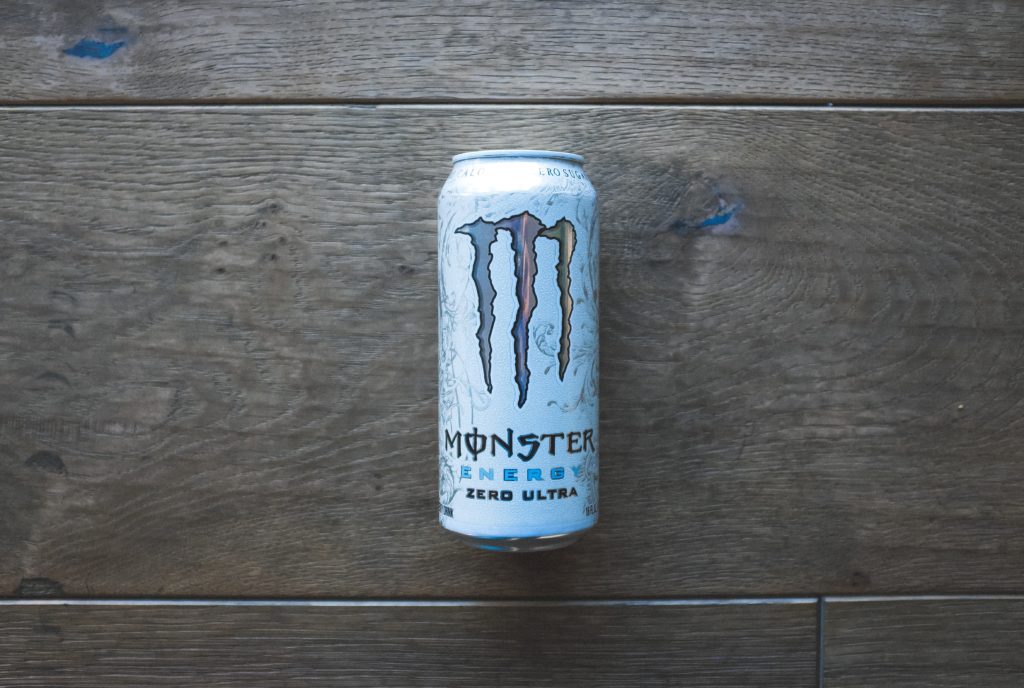Hansen Natural Company developed Monster Energy in April of 2002. It is a kind of energy drink as you can understand from the name. Monster energy drink is not the most nutritious beverage option. Monster energy drinks may provide an energy boost, and there is some data that they may be good for athletes. Monster is also an excellent source of B vitamins like other energy drinks.

Monster Energy is a type of energy drink. After the development of monster energy, the company changed its name to Monster Beverage in 2012. The monster had the second-highest market share, behind Red Bull, of the $5.7 billion US energy drink market as of 2020, accounting for close to 39%. Monster Energy sponsors and supports numerous extreme sports events. So it is one of the most popular energy drinks in the world.
Athletic Performance and Monster Energy Drinks
According to a position statement on energy drinks that was published in 2013 by the International Society of Sports Nutrition, consuming an energy drink such as Monster Energy drink anywhere from ten to sixty minutes before engaging in physical activity has the potential to improve overall athletic performance. This includes improved concentration, alertness, and endurance. According to the ISSN, the improvement can be attributed to the carbohydrates and caffeine found in the drinks. However, the ISSN also points out that athletes may not always be the best candidates for consuming energy drinks because of the high sugar content of these beverages and the potential impact that they may have on both blood sugar and insulin levels.
Health Concerns Related to Monster Energy Drinks
Monster energy drinks have caffeine in them and drinking too much caffeine from any drink, especially if you drink several in one day and are sensitive to its effects, can cause anxiety, insomnia, and heart problems like irregular heartbeat and high blood pressure, and in very rare cases, seizures or cardiac arrest.
Monster energy drinks don’t have regulations from The Food and Drug Administration (FDA). The Food and Drug Administration imposes a caffeine maximum of 71 mg per 12 ounces of soda, while energy drinks often include 120 mg per 12 ounces. Nonetheless, to get around the caffeine restriction, the marketers of energy drinks can decide to label their products as a supplement instead. The American Beverage Association has published voluntary guidelines for businesses that market their energy drinks as beverages. These guidelines recommend accurate listings of the amount of caffeine contained in the product, restricting marketing to children, and reporting adverse events to the Food and Drug Administration. However, research has shown that only a relatively small percentage of people follow these principles.
Many people consume energy drinks like Monster with alcohol. When energy drinks are mixed with alcohol, the tendency of consuming too much is prevalent among teenage drinkers and it is related to binge drinking. The reason for that is while consuming alcohol and energy drink together people may be less conscious of how much alcohol they’ve consumed since the sedative effects of alcohol can be masked by the caffeine and other stimulants in energy drinks. Researchers refer to this phenomenon as “wide awake drunk,” which occurs when excessive levels of caffeine in energy drinks counteract the sleepiness caused by alcohol consumption. This implies that it is likely that we may miss the signs that our bodies normally send when we’ve had too much to drink, and as a result, we may wind up consuming more alcohol than we normally would have.
Conclusion:
Monster Energy is an energy drink. Monster Beverage which produces Monster Energy drinks changed its name in 2012 after entering the market with its new energy drink. As of 2020, Monster had about 39% of the $5.7 billion US energy drink industry, behind Red Bull. Monster Energy sponsors extreme sports. In February 2022, it was reported Monster and Constellation Brands were considering a merger that would have a combined market capitalization above $90 billion.
FAQs
- Are Monster Energy drinks popular?
Yes, they are popular because of their flavor, effectiveness, and quality. There is a good chance that you may run into Monster at major grocery and retail chains, in addition to seeing Monster in a number of other commercials.
- How much do Monster Energy drinks contain vitamin B?
It has 3.6mg Vitamin B2 (Riboflavin), 46mg Vitamin B3 (Niacin), 4.6mg Vitamin B6 and 13µg Vitamin B12 per 16 fl.oz.
- Does Monster Make You Lose Weight?
Drinking Monster, which includes a considerable amount of sugar, would lead you to put on extra weight due to the beverage’s sugar content. On the other hand, it can provide you with a burst of energy that will allow you to exercise for a longer period.
- Is there an alternative to energy drinks?
Adding glutamine supplements into your diet can enhance your energy, and amino acids like glutamine have been found to speed up muscular growth. Six days of supplementation with glutamine, according to a study conducted at Louisiana State University, gave athletes the energy to train harder and longer.

